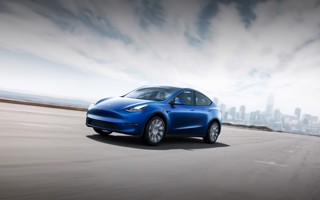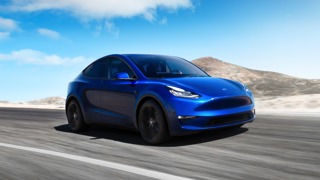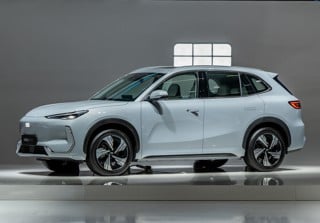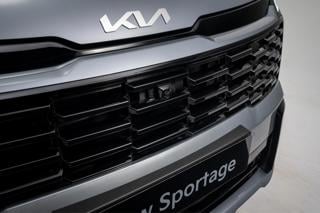By Thom Groot, co-founder and CEO of The Electric Car Scheme
Tesla is the biggest electric car company with a supply chain to match.
But the electric car market desperately needs more than one significant player - if only to cater to different tastes.
I love Tesla - the company has done a huge amount to make the electric car mainstream and desirable.
Indeed, a huge proportion of the people who get an electric car through The Electric Car Scheme I run come in the door wanting a Tesla.
It’s the brand of electric car they’ve heard of, and the long range and futuristic details tick all the right boxes.
A Tesla isn’t always the right car for every person - there are far cheaper electric cars for example - but it often is.
I look forward to helping people into Teslas for years to come. But I do hope the company’s sheer dominance starts to fade.
If you want an idea of just how dominant Teslas are, look at new vehicle sales for last year.
Purely electric cars made up just 17% of the new car sales, yet the Tesla Y was the third best-selling vehicle across the entire new car market, taking in roughly 20% of battery electric sales.
Indeed, as the end of the year approached and Tesla rushed to make as many sales as it could for the quarter, the company had an exceptional December, outselling every other car brand - and driving up electric vehicles (EVs) numbers themselves for the year.
That 20% of the electric car market is pretty remarkable.
No single brand comes anywhere close to controlling that much of the petrol or diesel markets - not even giants like Volkswagen or Ford.
For my own leasing business, Teslas make up about a third of the cars we lease out, with huge bumps in bookings when Tesla release new models or drop their prices, as they did a few weeks ago.
So what’s wrong with that?
The UK’s transition to electric cars is far too important to be this reliant on one company.
Transport is the UK’s number one source of emissions, with passenger cars making up the majority.
Four-in-five new cars sold are still powered by fossil fuels - cars that will be on the road for years to come belching out emissions. This transition is far too crucial to rest on a single entity.
At this point if something was to go majorly wrong with Tesla - a factory shutdown, a huge recall or the like - it would have a very material effect on overall EV adoption. Tesla would catch a cold and the whole EV market would get sick too.
Furthermore, Tesla’s unique style of cars is definitely not for everyone.
Teslas are expensive, and the company only produces two models for the UK currently - the Model 3, and the Model Y.
If you are after a lower cost model or a hatchback, or something specific to you, you won’t get it from Tesla.
And frankly, Elon Musk is not exactly everyone’s cup of tea, and that is putting off a larger number of people who would like to make the green choice.
Tesla’s dominance does make some sense. Unlike the other big car brands operating in the UK, they only make battery electric cars.
No one in a Tesla showroom is able to find you a plug in hybrid or efficient petrol car if you express some worry about a fully electric vehicle.
This clarity of purpose also means they have a strong supply chain operation, able to source crucial materials that other carmakers are having a tougher time finding.
To claim a bigger piece of the pie, other manufacturers will need to put in a concerted effort and focus more on electric cars.
Most still need to do a lot of work to establish supply chains as reliable as Tesla’s.
British car makers might need a bit of help from the Government too - after all the USA has rolled out serious subsidies for American-made electric cars, and the EU is now working with the USA to align its own subsidies somewhat in order to avoid a trade dispute.
Tesla itself has had plenty of help from Government subsidies in the US. UK car manufacturers are being left behind.
The 2030 ban on new purely petrol and diesel vehicles is not all that far away.
We will need more than one superstar electric car company to get there.
> Interested in comparing electric vehicle data? Check out our EV tool.
> Interested in ensuring the efficient use of EVs. Check out our dedicated editorial sections: Insight & policy | EV news | Charging & infrastructure | Costs & incentives | Benefit-in-kind | EV case studies | EV road tests



















Login to comment
Comments
No comments have been made yet.